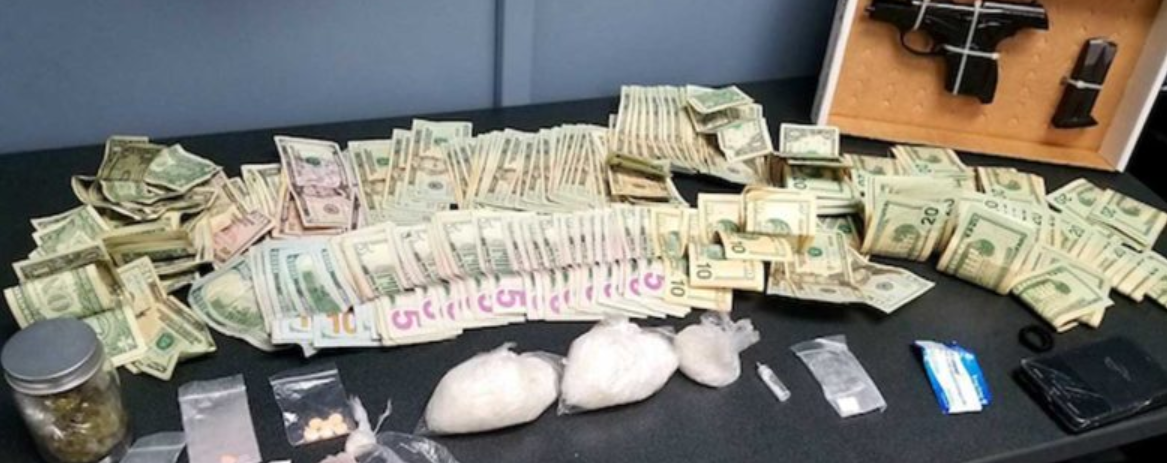Experience Successfully Defending Federal Drug Charges in Michigan
Federal Criminal Defense Attorneys with an unparalleled track record of successful representation in the United States district courts throughout Michigan.

Can Any Defense Attorney Handle a Federal Drug Case?
Yes and no. Any lawyer admitted to practice before the federal bar may represent a client on a federal drug case. Being “represented” is far different than being represented well. For the best results, persons facing federal drug charges need a top-rated, effective defense attorney who has had extensive experience in federal court and experience dealing with federal prosecutors, judges, and court procedures. Many attorneys who handle state drug cases are not familiar with federal procedures, and their unfamiliarity and inexperience can result in terrible consequences for a client. A defendant’s best hope of avoiding or reducing prison time or a conviction is with experienced, successful federal drug charges defense attorneys by their side. It is possible to retain a great lawyer at fair and affordable legal fees.
Federal Drug Prosecutors and Judges
Federal drug charges defense is highly specialized, and drug charges carry heavy penalties. And unlike the state court system, there is no parole in the federal system. The Assistant United States Attorneys who routinely handle drug prosecutions in the U.S. District Court are highly trained, aggressive, and will do everything possible to secure a conviction and harsh sentence. The judges in federal court are generally conservative and used to handing out lengthy prison terms. Is there hope? Yes! For decades, the Federal Drug Charges Defense Attorneys with LEWIS & DICKSTEIN, P.L.L.C. have effectively and aggressively defended clients on federal felony and misdemeanor drug cases. They are ready, willing, and able to help you or your loved one today.

Types of Controlled Drugs
Federal law divides drugs into 5 “schedules,” depending upon the dangerousness and medical usefulness of the drugs. An attorney must be aware of the schedules and the penalties their use, manufacture, or sale carries.
Schedule I
Schedule I drugs are those that the law has determined have no legitimate medical use and are highly dangerous and addictive. Virtually all of them are illegal to possess or use. Examples of such drugs are Heroin, Ecstasy, LSD, and Marijuana. Although many states have legalized marijuana to some degree, federal law does not permit the use, possession, manufacture, or sale of marijuana. A medical marijuana card carries no weight in a federal court. Convictions for the sale or distribution of Schedule I controlled substances can result in lengthy prison sentences.
Schedule II
Schedule II drugs are similarly dangerous and highly addictive, but they are still used in the medical field. Examples of such drugs are Methamphetamine, Methadone, Dilaudid, Oxycodone, Morphine, and Codeine. A prescription is required to use these drugs, or they are administered in person by a doctor or nurse. Prescriptions may not be refilled, and a doctor must prescribe these drugs to you one prescription at a time due to the danger they pose. Like Schedule I cases, judges and prosecutors frequently seek to impose harsh penalties for cases involving Schedule II controlled substances.
Schedule III
Schedule III drugs are potentially habit-forming. Examples are Ketamine and Flunitrazepam (commonly referred to as the “date-rape” drugs), anabolic steroids, and Tylenol with Codeine. A prescription is required for the use and possession of these drugs.
Schedule IV
Schedule IV drugs are commonly prescribed as part of a mental health treatment program for anxiety and depression, including Lorazepam, Diazepam, Halcion, and Xanax. A prescription is required for possession and use of these drugs.
Schedule V
Schedule V drugs are relatively safe drugs and have a low potential for dependence, such as cough medicine with low doses of Codeine. A prescription is required for possession and use of these drugs. Although cases involving the sale or distribution of Schedule III, IV, and V substances are less severe than Schedule I and II cases, the U.S. Attorney’s office in the Southeastern District of Michigan is notoriously tough on all controlled substance cases.

What Are the Penalties for the Sale or Distribution of Controlled “Scheduled” Drugs?
The penalties for drug convictions are complex and depend on the amounts and types of drugs involved. Suffice it to say that the penalties are harsh, even for first offenders. For instance, the first offense for possession with intent to sell or distribute cocaine carries a penalty of 5-40 years in prison and a $2 million fine. If death or serious injury is involved, the mandatory minimum is 20 years up to life and a $4 million fine. The penalties rise rapidly when more significant amounts are involved. Qualified, aggressive federal drug charges defense attorneys will do whatever it takes to stand up to the highly-skilled, specialized assistant United States attorneys who prosecutor these offenses.
The penalties for drug offenses typically are more severe in the federal system, and as stated above, there is no parole. A state sentence is often less severe, and prison terms are less. If you are looking for a federal drug charges defense attorney, you had better find a great one. Your life, for all practical purposes, depends on it. A federal drug charges defense attorney must know the penalties and be familiar with the federal prosecutor and judge on the case. It takes decades of experience for an attorney to achieve consistent and reliable results in federal court.
Federal Drug Charges Involving Firearms
The most serious federal drug charges are those involving or connected to firearms. Federal firearms laws provide severe penalties for firearms use by someone determined to be a violent offender or drug trafficker. For example, possession of firearms by convicted felons or drug users can result in punishments of up to ten years imprisonment. If such possession occurs after one is convicted of three violent felonies or serious drug trafficking offenses, the violator must serve at least fifteen years in prison.
Whenever a firearm is allegedly used or carried as part of a violent offense or drug trafficking crime, this is called a “924 violation,” and a conviction will result in mandatory prison time. The use of a shotgun or assault weapon adds 10 years, and if an automatic weapon, silencer, or destructive device is used, 30 years imprisonment is added to the underlying charges.
The right representation in these cases can make the difference between decades or years in prison. In some cases, an experienced, respected, and influential lawyer can get charges reduced or dismissed.

Simple Possession of Drugs Charges in Federal Court
Federal drug possession is a misdemeanor, punishable by up to 1 year in prison. A second offense carries a minimum of 15 days and up to 2 years in prison. A third or subsequent possession conviction has a maximum sentence of 3 years in prison with a mandatory minimum of 90 days. Possession of flunitrazepam (“roofies” or “roaches”) carries a maximum sentence of three years. In addition to incarceration, these offenses carry fines, and the court can order reimbursement to the government for the cost of investigation and prosecution. The drug possession defense attorneys with LEWIS & DICKSTEIN, P.L.L.C. have successfully handled thousands of possession cases and know exactly how to help you.
Drug Paraphernalia Charges
The sale, import, export, or shipping of drug paraphernalia is a federal felony punishable with up to 3 years in prison. Any equipment used to make, conceal, or use illicit substances is referred to as drug paraphernalia. Examples include bongs, roach clips, small spoons, and other sorts of pipes. The word “drug paraphernalia” is defined by federal law as “any equipment, product or material of any kind which is primarily intended or designed for use in manufacturing, compounding, converting, concealing, producing, processing, preparing, injecting, ingesting, inhaling, or otherwise introducing into the human body a controlled substance.”
How Can I Tell if an Attorney is Experienced with Federal Cases?
You can start by asking an attorney about their experience as a federal drug charge defense attorney and their experience in federal court. There is no reason to be shy in a conversation with an attorney because you need to know that the attorney is trustworthy, zealous, and effective. You can also go to www.avvo.com to research the attorney and see if and how they have been rated.
In times of unexpected legal trouble, too many people panic and call an attorney they happen to know, such as a divorce lawyer, probate lawyer, or business lawyer. Hiring a lawyer who is not a criminal defense specialist is a huge mistake. If you face a criminal drug case, especially a federal drug charge, you should hire a top federal drug charges defense lawyer that exclusively handles criminal cases. Many lawyers occasionally handle criminal cases and practice in other areas of the law. These lawyers are not doing you any favors. It’s this simple: you don’t hire a heart surgeon if you need brain surgery.

LEWIS & DICKSTEIN, P.L.L.C. – Federal Drug Charges Defense Attorneys
The dedicated, experienced, and zealous criminal defense attorneys at LEWIS & DICKSTEIN, P.L.L.C. have successfully represented numerous clients on felony and misdemeanor charges in federal court. We are well-known and well-respected by federal judges and prosecutors and have a well-earned reputation for providing the highest quality defense and aggressive representation. If you call us for a free consultation, a federal drug charges defense attorney will take the time to talk with you, answer your questions, and address each of your concerns. Together, we will build an effective defense strategy.
Call us today at (248) 263-6800 for a free consultation or complete an online Request for Assistance Form. We will contact you promptly and find a way to help you.













